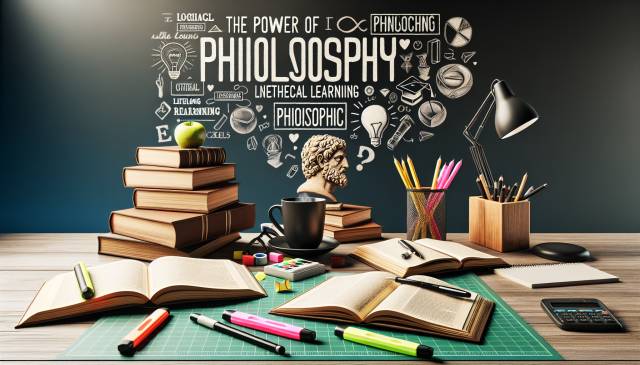
Philosophy has often been regarded as the backbone of education, offering tools for critical thinking, ethical reasoning, and a deeper understanding of the world. In an age where information is abundant yet often superficial, the study of philosophy can help learners cultivate a more profound understanding of key concepts and frameworks that define our existence.
Why Study Philosophy?
The reasons to engage with philosophy are as varied as the disciplines it touches. Here are some compelling benefits:
- Critical Thinking Skills: Philosophy teaches you to analyze arguments, identify fallacies, and construct logical reasoning.
- Ethical Understanding: It provides a framework for understanding moral dilemmas and ethical decision-making.
- Communication Skills: Philosophy encourages clear and coherent expression of complex ideas.
- Intellectual Curiosity: It fosters a love for questioning and exploring the unknown.
Philosophy in the Classroom
Integrating philosophy into the educational curriculum can significantly enhance the learning experience. Here are some methods to do so:
- Socratic Method: Engage students in dialogue, encouraging them to ask questions and develop their reasoning through discussion.
- Debates: Organize debates on philosophical topics, allowing students to explore multiple perspectives.
- Philosophical Texts: Introduce classic and contemporary philosophical works to inspire critical thought and reflection.
Philosophy and Lifelong Learning
Education does not end in the classroom. Philosophy encourages lifelong learning and personal growth. By continuously questioning and reflecting, learners can adapt to new challenges and perspectives throughout their lives.
Developing a Philosophical Mindset
To cultivate a philosophical mindset, consider the following practices:
- Reflective Journaling: Regularly write about your thoughts, beliefs, and experiences to enhance self-awareness.
- Engaging with Diverse Perspectives: Read widely and converse with others from different backgrounds to expand your understanding.
- Seeking Mentorship: Connect with educators or philosophers who can guide your exploration of philosophical topics.
Courses to Explore
If you're interested in diving deeper into philosophy, here are some courses available from various educational institutions:
- Introduction to Philosophy: A foundational course that covers key philosophical concepts and thinkers.
- Ethics and Moral Philosophy: Explore the principles of ethical reasoning and their application in real-world scenarios.
- Philosophy of Mind: Delve into questions about consciousness, perception, and identity.
- Political Philosophy: Analyze the nature of justice, rights, and the role of government.
These courses not only provide knowledge but also challenge you to think critically and engage with the world meaningfully.
Conclusion
Incorporating philosophy into your educational journey is not just about understanding abstract concepts; itâs about developing a toolkit for navigating the complexities of life. As you engage with philosophical ideas, remember that the goal is not to find definitive answers but to foster a mindset of inquiry and reflection. Embrace the power of philosophy and discover how it can transform not just your education, but your entire approach to learning and living.
